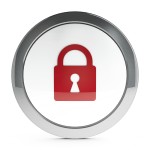
Festive Digital Detox
Festive digital detox – top tips. Will you enjoy a digital detox over the festive season and switch off from work emails? We have written about the benfits of a digital detox many times before. But htis year perhaps more than any other, we all need a festive season digital detox. If ever there was a time of year to have quality time with family and friends, it’s Christmas. Nonetheless, many people find it hard not to check their work emails. They feel someone expects them to be reading emails even on Christmas Day. But do they? Or is it just a cover-up for some form of email addiction, fear of missing out, personal inadequacy, etc.
We have written many times before about the importance of having an email free vacation. A full digital detox would involve switching off from all digital devices. However, the Christmas period is probable one of those times when you will want to use digital media (eg WhatsApp, FaceTime etc) to contact family and friends who are not going to be with you. That does not mean you should also take a quick peak at work-related emails and social media posts. Make the Christmas break a time to re-balance the work-life balance and have quality time with those you care about and who really care about your well-being.
Here are five top tips to enable you to safely switch-off from work related emails, relax and enjoy at least a partial digital detox.
Remember too that this is a high risk time for cyber attacks Click here to top tips on how to improve your defence to potential cyber attacks especially at home.
Tags: Christmas digital detox, Cyber crime reduce risk, Digital detox, Email free Christmas, out of office message

Top tips to improve human resistance to cyber crime, The weakest link in any organisation’s defence to cyber crime is us the users. Here are top tips to for PAs and EAs spot possible vulnerabilities and actions to take to improve your defence to a potential cyber attack. Published in Executive Secretary Magazine June 2019
Tags: Cyber crime reduce risk, Email born cyber crime, Human defence to cyber crime
Why is cyber crime so prevalent when most organisations have cast iron technological defences?
Would it suppose you to know that we are the weakest link in the organisation’s defence against cyber crime. Why? Because we are often time poor and speed is of the essence.

Cyber crime the weakest link
We grab a coffee whilst using a mobile device and forget to look around to see who is watching us and listening to us as we key in our passwords. Yes, the professional hacker can detect your key strokes by special listening devices. Maybe we leave our mobile devices open whilst talking to friends. Email is the number one vector for a cyber attack. 75% of all cyber attacks emanate from email. In our haste to clear our bulging inboxes, by accident we open an email which carries malware.
Five top tips to reduce the risk of a cyber attack
Here are ten top tips to help you and your organisation reduce the risk of human error in the fight against cyber crime. It is an extract from Mesmo Consultancy’s new masterclass ‘Human Defence to Cyber Crime’.
In public places
1. Use a pseudo name when ordering food in very public places like coffee bars and fast food shops.
2. Keep all mobile devises either closed or face down when not in use.
3. Have respect for email. Take time when dealing with the inbox no matter how busy you are.
4. Phone senders if you are the slightest bit suspicious about an email: there is a spelling mistake, caps are used etc. Often the sender will not know their account has been hacked until you call.
Password management
5. Change your passwords frequently and at least every three to six months, making sure you either create a strong one or use a password management app.
Need more help?
Would you and your colleagues benefit by going from being the weakest link in the fight against cyber crime to being the most robust and resilient?
Call or email us now for more information about our new masterclass – ‘Human Defence to Cyber Crime’.
Tags: Cyber crime reduce risk, Email born cyber crime, Mesmo Consultancy, Out of Office message cyber crime, Password Management, social media cyber crime